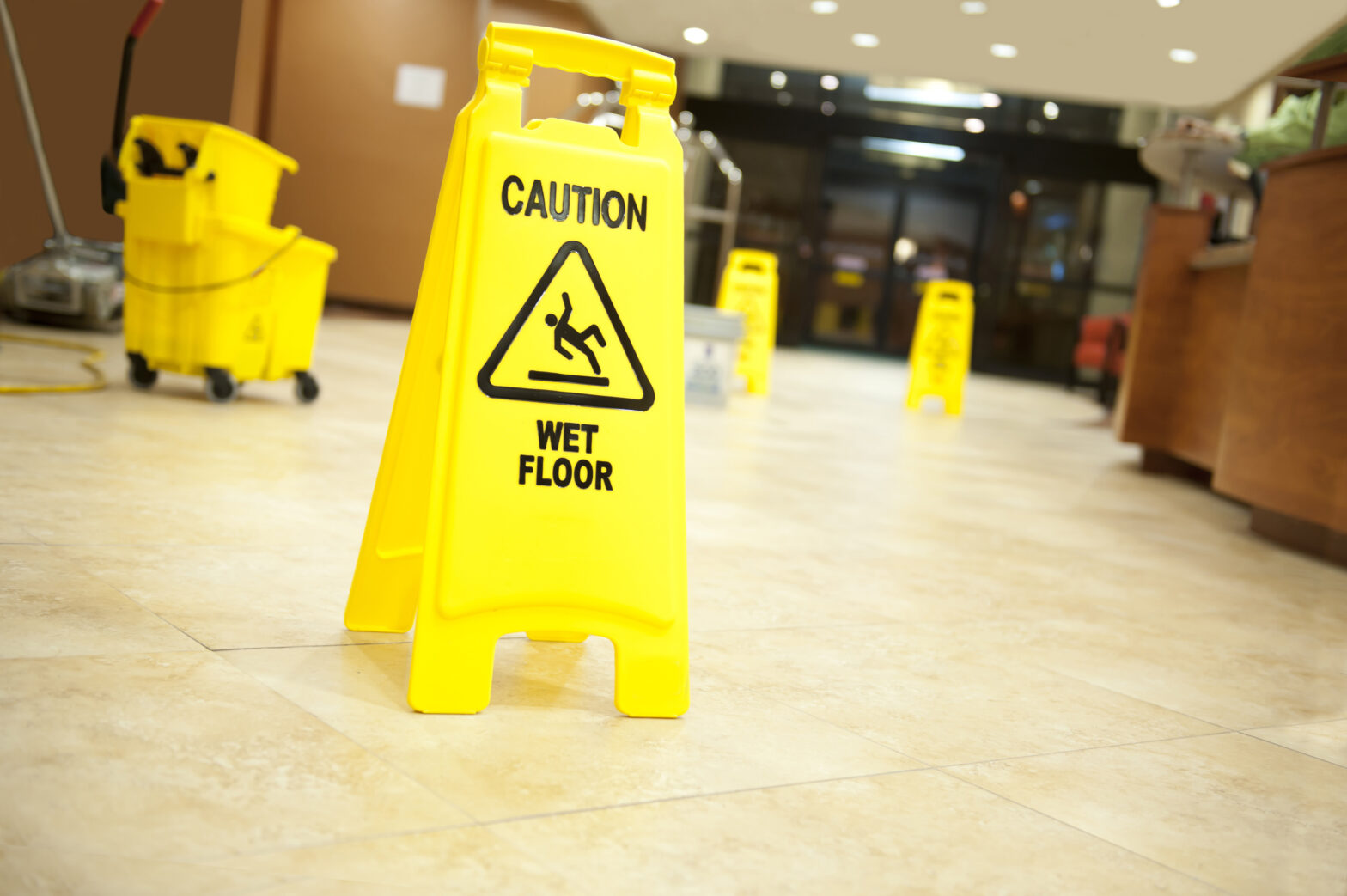In all areas of business, it is important that the right health and safety precautions are taken. Particularly with hospitality businesses such as small hotels and B&Bs, ensuring the safety of guests and workers builds trust and safeguards businesses from being subjected to lawsuits or legal issues.
As the health and safety regulations become stricter, B&Bs are forced to meet all requirements without cutting any corners, for the benefit of both their employees and their customers.
The main health and safety concerns in a hospitality business are unguarded/faulty machinery, slippery floors, sharp objects, biohazards, falls from height, fire accidents and gas leaks.
- Unguarded/ faulty machinery – general machinery like boilers and electrical appliances used around the premises can cause serious injury if not monitored properly. Faulty equipment like ovens or heaters can also cause fires and even minor explosions if they are not well maintained.
- Slippery floors – a common issue, especially for venues with a swimming pool, slippery and wet floors are dangerous and can lead to fractures, head injury and even loss of consciousness.
- Sharp objects – a problem most likely to be found in the kitchen, sharp objects like knives, blenders and meat cutters can lead to deep wounds.
- Biohazards – biohazards include exposure to dirty needles, cleaning products such as industrial bleach, chemicals, and contact with bodily fluids on surfaces (blood, etc). These can cause everything from vomiting and skin irritation to harmful infections and toxic poisoning.
- Falls – Another common issue in hospitality, falls from a staircase or height are unpredictable. They can cause breakages, fractures and some have even been fatal.
- Fire accidents and gas leaks – Possibly the most concerning hazards in the industry, fires and gas leaks can be deadly. Fire accidents can start from faulty electrical wiring, lit cigarette butts, all electrical appliances that are more prone to developing faults (toasters, hair straighteners etc.), overheated appliances, short circuits, misuse of flammables, improper of adaptors, and cooking. Gas leaks can be started by faulty gas appliances and naked flames near chemicals. This can cause carbon monoxide poisoning, burns and even fatality from explosions or suffocation.
To this day, a number of B&Bs and independent hotels continue to avoid following health and safety guidelines either to save money or avoid the hassle. But by neglecting these government-enforced rules, they can find themselves dealing with horrific consequences; this includes the possibility of a lawsuit that could lead to hefty penalties, or even worse, imprisonment.
The 2006 Thomas Cook case is a prime example of this. During a family holiday at the Louis Corcyra Beach Hotel in Corfu, the Shepherds suffered carbon monoxide poisoning due to a defective boiler. Christianne and Robert Shepherd were found lying dead by a cleaner; the kids’ father Neil Shepherd and his partner Ruth were also found comatose. Thomas Cook went on trial and were cleared of responsibility for the incident, though their health and safety audit was deemed inadequate. Many are now threatening to boycott the company and have shared their anger and outrage of the situation via various social networks.
To prevent fatality and any other dangers for guests and staff, B&Bs and small hotels need to take the necessary precautions. According to WorkSafeBC, these should include:
- The comprising of a list of health and safety precautions suited to each individual resort business
- Regular inspections of equipment and facilities
- Constant checks for potential hazards around the premises
- The proper training of staff to prepare them for emergency situations
- The recording of all incident investigations and equipment checks, and
- The development of a safety plan in case of an emergency.
Bryan Richards, managing partner of health and safety consultancy Arinite says of the issue, ‘Customers deserve and expect to have an enjoyable stay at a hotel or B&B and want to leave without any accidents that could result in injury.
‘Hoteliers have a responsibilty to ensure a risk assessment is carried out regularly for the safety of their guests and staff.’
It is the obligation of the B&B or hotel to ensure the safety and comfort of their guests and staff. Health and safety precautions need to be put in place more efficiently, particularly during the summer, to stop dire accidents from happening.
Further reading on managing a B&B business
How hotels and bed and breakfasts can grow their visibility online – Your hotel or bed and breakfast’s online presence could be one of the most powerful marketing channels – here’s how to maximise it.
Tips on running a B&B – Alice Douglas offers 13 tips for B&B owners derived from her 15 years of experience.
Advice for those considering buying a B&B – Gareth Smyth looks at the key things to weigh up before purchasing a bed and breakfast business.





